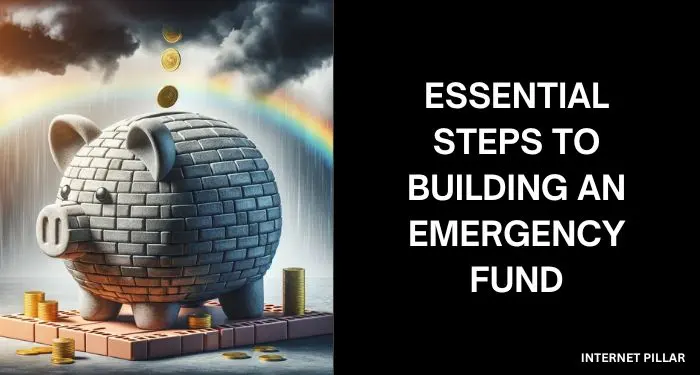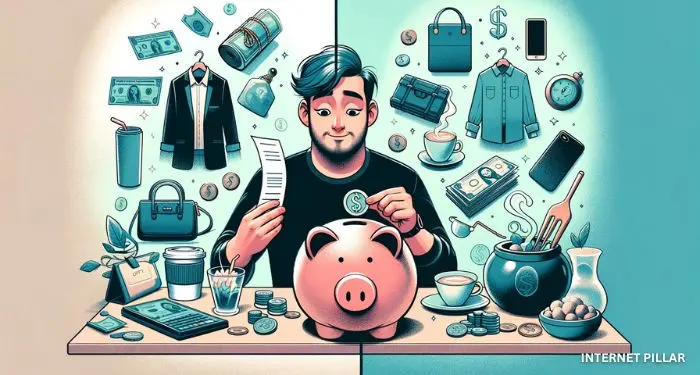Having an emergency fund is important for your financial health.
It’s like a safety net for life’s unexpected costs like car repairs, medical bills or sudden job loss.
Sadly only 44% of Americans can handle a $1,000 emergency with their savings.
With living costs going up saving gets tougher. Still setting up an emergency fund is key for financial health.
You can think of it as a buffer against debt especially important during crises like job loss or medical emergency.

A solid emergency fund offers financial security for life’s surprises.
Typically you should target to save three to six months of expenses.
Even if you’re starting from zero small consistent savings can build your fund.
We’ll show you how to create and use this fund wisely preparing you for life’s unpredictable moments.
Let’s get started.
15 Essential Steps to Building an Emergency Fund
1. Save Your Salary Raise
When you get a raise keep living on your old budget.
Put the extra money into savings.

This helps build your financial cushion without feeling the pinch.
2. Timely Bill Payments
Paying bills on time avoids extra charges.
If you’re often tight on funds having a savings buffer can prevent late payments and bank overdrafts.
3. Monitor Spending
Regularly check your spending habits.
Whether it’s a new game, pair of jeans or shoes knowing where your money goes can help cut unnecessary expenses.
4. Earn Extra Through Freelancing
If your job allows freelance in your free time.
Use your skills to earn more and save the additional income.

This is a proven strategy to boost savings.
5. Choose a Rewarding Savings Account
Look for savings accounts with annual yields.
Be mindful of minimum balance requirements and avoid accounts with annual fees.
Shop around for the best option.
6. Avoid New Debt
Build an emergency fund to prevent using credit cards for unexpected expenses.
This stops the cycle of increasing debt during emergencies.
7. Cut an Expense and Save the Difference
Identify and reduce one unnecessary expense.
Direct the saved money into your savings account instead.

This is an effective way to boost your savings from your current income.
8. Start Saving Even Small Amounts
Begin saving with whatever you can even if it’s just $25 per paycheck.
Small consistent savings reduce the burden and build up over time.
Setting up automatic transfers can help you reach your savings goal.
9. Analyze Your Income Sources
For those with multiple income streams like small business owners it’s important to categorize your income as continuous or periodic.
This understanding can help in better financial planning.
10. Automate Savings
Make saving effortless by automating it.

Many employers offer direct deposit into multiple accounts allowing you to designate a portion of your paycheck to go directly into your emergency fund.
11. Invest After Reaching Savings Goal
Once you’ve met your emergency fund goal consider investing to grow your money.
A Certificate of Deposit (CD) can earn more interest than a regular savings account.
12. Movie Nights at Home
Skip the theater and enjoy movies at home.
It saves the cost of tickets food and drinks. Plus it’s a cozy way to spend quality time.
13. Utilize Discount Cards
Make use of discount cards whenever you are buying food or while doing shopping.
It requires smart planning but helps in saving money effectively.
14. Sell Unused Items
Sell things you don’t use anymore like extra furniture or rarely used gadgets.

This declutters your space and adds to your savings.
15. Emergency Fund cover of 3 to 6 months
Your emergency fund should cover 3-6 months of expenses.
The amount depends on factors like dependents if your spouse is earning or if you have additional support.
For single-income families or self-employed individuals consider saving for up to eight months. Also don’t overlook health and disability insurance.
I hope these tips will be helpful in making a great strategy for saving emergency fund.